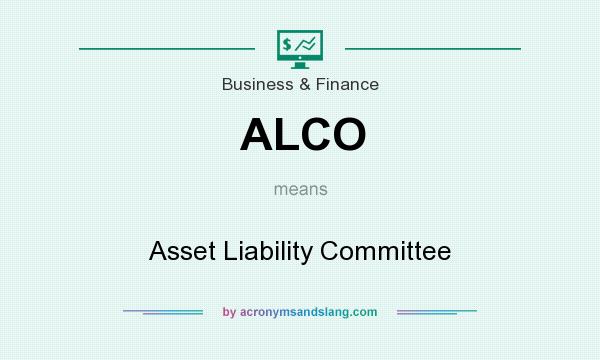Asset-Liability Committee (ALCO) is an important financial tool used by banks and financial institutions to manage their balance sheet. ALCO plays a crucial role in financial risk management and helps organizations manage the risk associated with their assets and liabilities. It is a committee of top executives and financial professionals that review financial decisions and make sure that they are in line with the organization’s goals. ALCO helps organizations assess the risk associated with their investments, loans and other financial instruments. In addition, ALCO also helps banks and other financial institutions manage liquidity and protect their capital.
What is an Asset-Liability Committee (ALCO) and How Does it Work?

An Asset-Liability Committee (ALCO) is a committee within a financial institution that helps monitor the balance between assets and liabilities. This committee helps ensure that an organization can meet its short-term obligations and long-term goals. ALCO is responsible for developing strategies to manage risk and maintain liquidity. They also review balance sheet positions, analyze credit and market risks, and develop and oversee policies and procedures. ALCO meetings are often held monthly and are attended by senior management, treasury, and investment staff. They review asset and liability positions and discuss strategies to manage interest rate, liquidity, and funding risks. ALCO is a critical part of a financial institution’s risk management process and helps ensure the organization is able to meet its goals.
Benefits of Asset-Liability Committees (ALCO) in Financial Institutions

Asset-Liability Committees (ALCO) are a powerful tool for financial institutions to help ensure that they are able to maintain a safe and sound financial position while also maximizing profits. ALCO committees provide a valuable forum to discuss and evaluate the risks created by mismatches between assets and liabilities, as well as to assess the overall liquidity position of the institution. By leveraging the collective knowledge and expertise of the ALCO members, institutions are able to reduce their exposure to risk and ensure that their financial decisions are made in the best interests of the institution. The benefits of using ALCO committees include improved risk management capabilities, increased profits, and peace of mind that financial decisions are being made with the long-term interests of the institution in mind.
Key Components of Asset-Liability Committee (ALCO) Management

The Asset-Liability Committee (ALCO) is a key component of financial management for businesses of all sizes. It’s responsible for assessing and analyzing the risks associated with the management of investments, loans, and other financial obligations. ALCO is responsible for developing strategies that ensure that the risks associated with the company’s investments, loans, and other financial obligations are adequately managed. ALCO is also responsible for reviewing and approving investment plans, loan portfolios, and other asset-liability strategies that are proposed by the company. ALCO is a crucial factor when it comes to creating a sound and successful financial strategy. Having a good ALCO team in place can help you manage the risks associated with investments, loans, and other financial obligations, while also providing guidance in making the right decisions. ALCO is an essential component of any financial plan and can help you achieve your financial goals.
Creating an Effective Asset-Liability Committee (ALCO) Strategy

Creating an effective Asset-Liability Committee (ALCO) strategy is essential for financial institutions looking to stay competitive and provide quality service. A comprehensive ALCO strategy should take into account all the different aspects of asset and liability management, such as liquidity, interest rate risk, capital management, legal risk, etc. An effective ALCO strategy should also include proper forecasting and contingency plans for both short and long term scenarios. Having an effective ALCO strategy in place will help financial institutions better manage their balance sheet and make informed decisions when it comes to asset and liability management. It is important for financial institutions to make sure that their ALCO strategy is up to date and in line with the current market conditions. A well-developed ALCO strategy can mean the difference between success and failure, so it is important to stay ahead of the curve and create an effective strategy that will keep your institution competitive and successful.
The Role of Asset-Liability Committee (ALCO) in Risk Management

An Asset-Liability Committee (ALCO) is essential for proper risk management in any financial institution. It is responsible for monitoring the financial health of a company and its ability to meet its obligations. It does this by examining a variety of factors, including liquidity, market risk, capital adequacy, and interest rate risk. The ALCO is responsible for keeping the institution’s risk exposure within acceptable levels. It also makes sure that the institution’s strategies are in line with the company’s overall goals and objectives. Without the ALCO, a financial institution could find itself in a risky situation with no way to recover. That’s why it’s important for any financial institution to have an ALCO in place in order to stay on top of their risk management.



